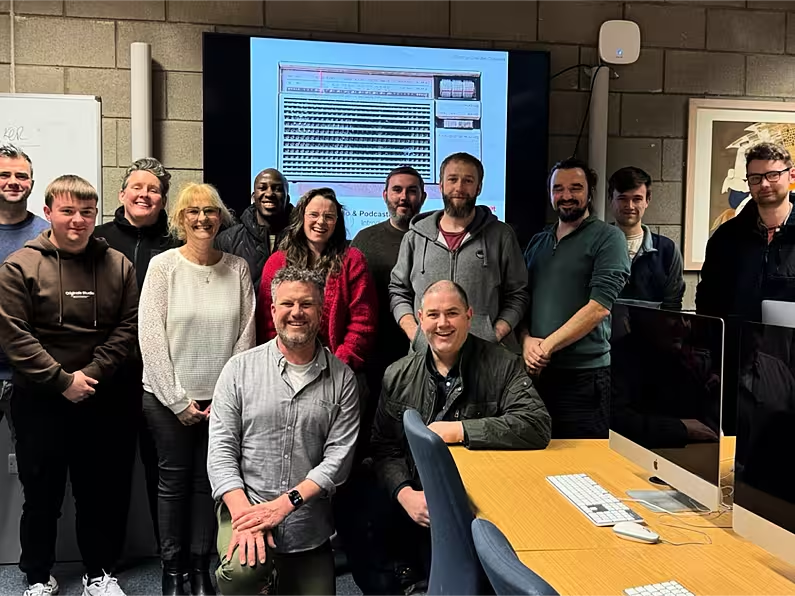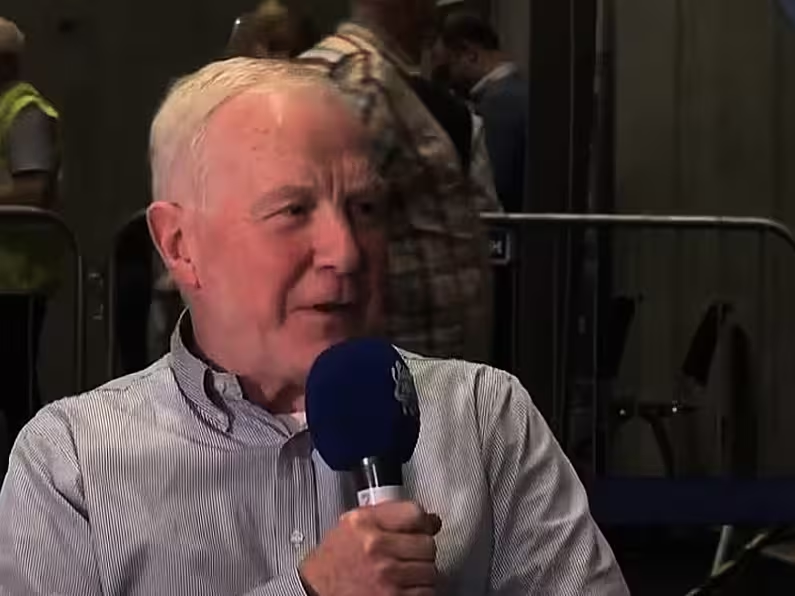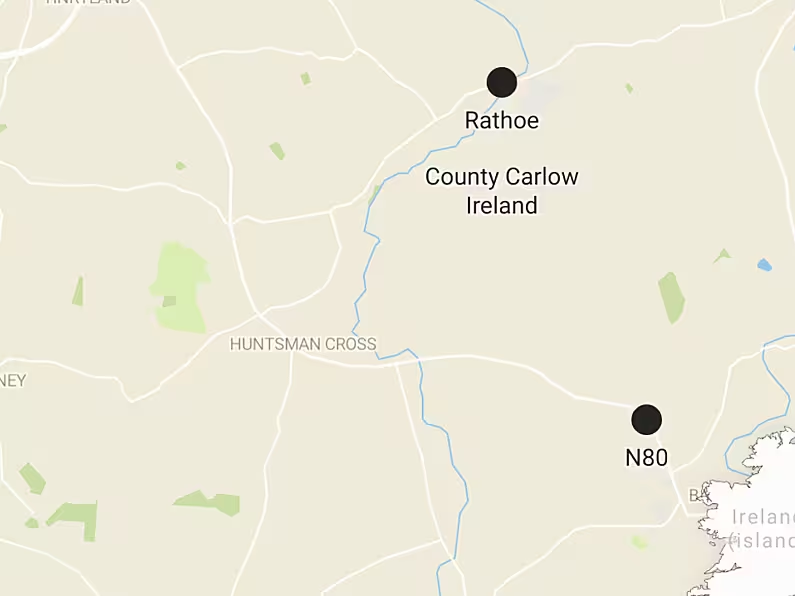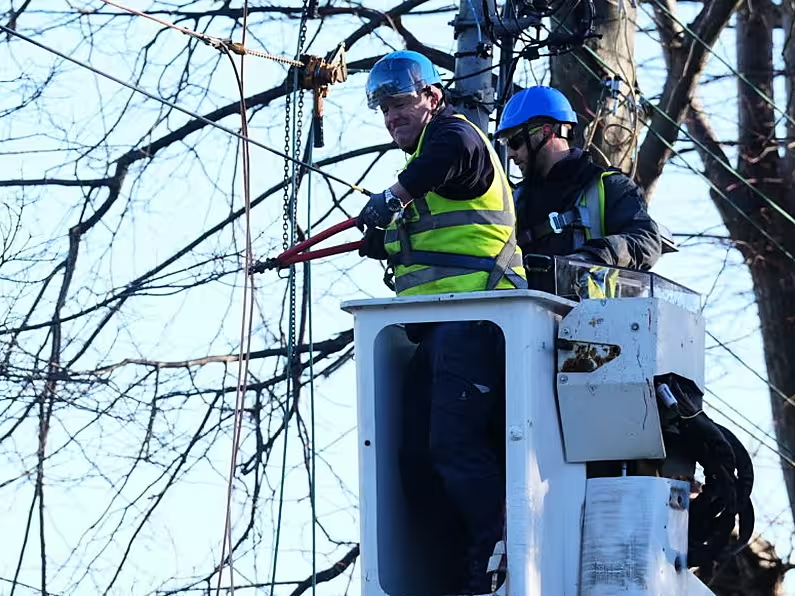Alison O'Riordan
An eyewitness to the murder of a pop star's lover said that an Estonian hitman, who is in jail here for his role in a Kinahan cartel murder plot, was not present at the scene, the High Court has heard.
Imre Arakas (62), who was jailed for his role in a Kinahan cartel murder plot and is currently serving his sentence in a segregated block in Portlaoise Prison, is challenging a bid to extradite him to Lithuania.
Lithuanian authorities suspect that Arakas was allegedly part of a three-man gang that conspired to murder a man said to have had an affair with famous Lithuanian pop star, Vita Jakutiene. Arakas told gardaí, however, that he was in Spain on the relevant dates.
The ex-wrestler was jailed by the Special Criminal Court for six years in December 2018 after he admitted to conspiring with others to murder James Gately in Northern Ireland between April 3rd and 4th, 2017.
Pop star
Lithuanian police are seeking the surrender of Arakas, whose a last address in Sopruse, Tallinn, Estonia, to face charges, which include a count of murder as well as firearms and conspiracy-related charges in relation to the shooting of Deimantas Bugavicius in 2015. There is also another warrant for the sole charge of criminal damage.
Arakas was arrested by gardai in a holding cell at the Criminal Courts of Justice building in Dublin in February 2018, on foot of a European Arrest Warrant (EAW) issued by Lithuanian authorities.
However, Arakas was jailed by the non-jury Special Criminal Court for six years in December 2018 after he pleaded guilty to conspiring with others to murder Mr Gately in Northern Ireland between April 3 and 4, 2017.
He was contracted by the Kinahan crime gang to assassinate Mr Gately and had boasted to his associates in coded text messages that he would take out his target with "one shot to the head".
Dressed in a blue jumper and jeans with a long silver ponytail down his back, Arakas was present in court today for the commencement of his extradition hearing before High Court judge Mr Justice Paul Burns.
European arrest warrant
Opposing the application for his surrender to Lithuania, Remy Farrell SC said the primary focus of the application was related to section 20 and 21A of the European Arrest Warrant Act 2003.
Mr Farrell said that the question was whether Lithuanian authorities had made a decision to try Arakas and stressed that there was "pretty clear evidence" that no decision had yet been made.
Counsel said that only after the court in Lithuania examines the evidence can they conclude if there is enough evidence to put him on trial. "If there is not sufficient evidence that the suspect committed the crime then the pre-trial investigation is terminated," he added.
Referring to the respondent's affidavit, Mr Farrell said that his client was visited by gardaí in Portlaoise Prison in June 2018 and informed that they wanted to interview him on behalf of Lithuanian police.
He said Arakas was served with a number of documents outlining that he was a suspect in a pre-trial investigation. On July 9th 2018, Mr Farrell said, gardaí again attended the prison and conducted an interview with Arakas in respect of the warrant. The lawyer said his client informed gardai that he was in Spain on the relevant dates.
Eyewitness
Mr Farrell said that the partner of the deceased, who was an eyewitness to the alleged murder, was shown photographs from an article published by Irish newspapers, which he said was supposed to be the respondent. "She concluded that he was not the person who was present at the scene. That is clearly something of significance in the argument we make under section 21A," said the barrister.
In reply, counsel for the Minister for Justice Ronan Kennedy SC said there was a very clear and unambiguous statement in the warrant showing that it was issued for the purpose of conducting a criminal prosecution.
He said it was neither "here nor there" whether the respondent's extradition was wanted for a pre-trial investigation. The case was on "all fours" with the separate extradition case of Liam Campbell who had also been nominated as a suspect, he added.
Campbell (58), who was found civilly liable for the Omagh bombing and has been battling extradition for more than 12 years, wants the Court of Appeal to overturn a decision by the High Court surrendering him to Lithuanian prosecutors. The authorities there allege that he was involved in the smuggling of weapons in support of the Real IRA (RIRA) between the end of 2006 and early 2007.
Potential trial
Mr Kennedy said that further information could be sought from the Lithuanian authorities as to whether an intention had been formed at this juncture in the case to put the respondent on trial.
The judge asked Mr Kennedy if the court should be asking if it was more probable or not that the respondent would be prosecuted. "It is more about intention than probability," replied Mr Kennedy.
Adjourning the case to next month, Mr Justice Burns directed counsel to draft further questions about whether there was "an intention" by Lithuanian authorities to try the respondent at the time of issuing the EAW.
Mr Justice Burns fixed Arakas' resumed extradition hearing for July 15th and his case was next listed for mention on July 12th.
Estonian movement
Arakas, a former freedom fighter who was previously part of a movement to separate Estonia from the former USSR, was remanded in custody until next month.
Last July, Aoife O'Leary BL, for Arakas, told the court that her client's sentence was due to expire in October 2029 and the extradition case concerned a "very significant matter of murder, firearms and criminal damage".
Passing sentence at the Special Criminal Court in 2018, Mr Justice Tony Hunt said Arakas had agreed to the "vital role" of pulling the trigger for financial gain and he was prepared to offer his "own detail" on how the murder of Mr Gately was to be performed.
The Estonian separatist told his associates in a text message that he would take out his target with "one shot to the head". The judge said the married father-of-two was "ready, willing and able" in his dedicated role.
Arakas had travelled to Ireland from Alicante in Spain on April 3rd, 2017 for the purpose of killing Mr Gately. The foreign national, who is in poor health, has been in custody in Ireland since April 2017.











